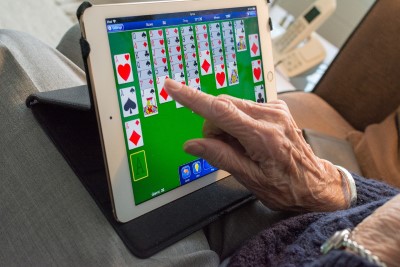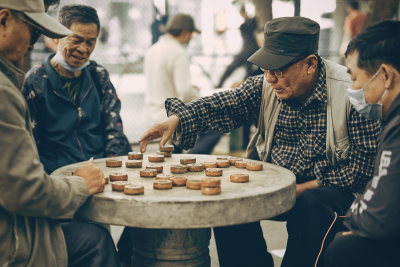Establishing social integration and creating an age inclusive community in Singapore
"It is important to understand that a cohesive society should be a common goal which benefits all age groups." Retired Professor Kalyani Kirtikar Mehta |
With the continuous growth in Singapore's elderly population, there is a pressing need to create an age-inclusive community in the city-state. In her chapter, Prof Kalyani explains why social integration is essential.
"It is important to understand that a cohesive society should be a common goal which benefits all age groups. A cosmopolitan society comprising people of different nationalities, cultures, religions, and educational levels creates many possible fault lines," she says. "These fault lines between social groups can affect social cohesion in Singapore. With this awareness, we could adopt a holistic approach to design multi-dimensional policies, services, and schemes that establish social cohesion." With these measures put in place, various social groups may work better together to build a cohesive society that is more equipped to overcome new crises or challenges.
However, a widening social chasm has formed between younger and older generations. One of the reasons for this divide is the increase in the number of nuclear families due to the Government's housing policies, which reduces inter-generational interaction and dynamics. According to Prof Kalyani, this is not an ideal situation. "The younger generation might not know or understand the challenges their grandparents' generation faced. Very likely, a lack of understanding among the next generation would arise regarding the struggles, hassles, and life experiences of seniors," she explains.
This widening inter-generational gap prompted Prof Kalyani to conduct research to determine whether sufficient age-inclusive spaces exist in Singapore. Age-inclusive spaces are public spaces that have features that accept and welcome all age groups. These spaces are vital as they promote age-diversity and create opportunities for inter-generational communication and community bonding. One such agency that advocates active ageing in Singapore is the Council for Third Age (C3A), which organises inter-generational learning programs. Prof Kalyani mentions in the chapter that such "programs also allow seniors to take up computational literacy training taught by students, thereby fostering interaction between the different generations."
With more communication and bonding opportunities, a more reciprocal relationship can then be established between youths and seniors.
Research highlights and future possibilities

Prof Kalyani's chapter was based on several research projects in different areas, such as family caregiving, cultural patterns, and inter-generational attitudes. The chapter also discusses seniors' experience with technology, the findings of which were based on her past research. She had discovered that seniors were reluctant to try new devices for fear of making mistakes and suggested that more research can be done to help them embrace technology, especially those who do not understand English and those with disabilities.
Prof Kalyani also states that more research on social integration and community bonding is needed, particularly with the influx of new migrants. "Singapore has done a fairly good job of encouraging people across cultures to take part in community activities, such as the new migrants. However, other than integrating these immigrants into the Singaporean community, we also need to integrate Singaporeans with the non-local population," she shares.
By integrating migrant communities into Singaporean society, a socially cohesive and strongly bonded community can emerge, with perhaps different cultural backgrounds, but a shared common identity and goal.
Work, Well-being and Resilience: Understanding Singapore's Mature Workforce
Besides the studies done for the chapter, Prof Kalyani is also currently involved in a research project, Work, Well-being, and Resilience: Understanding Singapore's Mature Workforce. It is supported by SkillsFuture Singapore with the aim to understand the factors influencing work-related decisions, lifelong learning, and mature workers' well-being in Singapore. Specifically, her focus is on inter-generational dynamics in the workplace, such as how companies plan their HR policies and whether they recognise older employees' efforts and contributions.
Prof Kalyani's expertise in gerontology contributed to the collaborative project. She says, "As the lead researcher for the qualitative component of the whole project, I can navigate the flow of the discussions, leading to more in-depth responses and rich qualitative data. These data help us to understand inter-generational dynamics in the workplace, which assists us in making good recommendations for these organisations."
Project collaboration with the Public Transport Council (PTC) and its implications
"Through the project collaboration with the PTC, we seek to find ways of improving the overall commute experience of the seniors to create an enhanced elder-friendly public transport system." Retired Professor Kalyani Kirtikar Mehta |
The increase in the number of mature employees in the workforce results in a rise in senior commute. As Singapore is land constrained, public transport is arguably the most effective means of travel across the city. Thus, Prof Kalyani undertook a research project with the Public Transport Council (PTC) to examine seniors' travel preferences and experiences with public transport.
The qualitative study focused on the seniors' psychological perceptions of public transportation, as a keen understanding of seniors' travel behaviour is vital to increasing social inclusion and healthy ageing. Prof Kalyani elaborates on this, "Through this project, we seek to find ways of improving the overall commute experience of the seniors to create an enhanced elder-friendly public transport system. By understanding their limitations and challenges, we can feedback to PTC on how the travel experiences can be made safer, more user-friendly, and also encourage seniors to travel safely on public transport."
Moving forward, Prof Kalyani hopes that a better transport system will provide seniors with greater incentives to engage with the community and be socially active.

Conclusion
Social integration and community bonding are essential to ensure that the seniors are accorded the respect and space they need to be a part of Singapore's society. Prof Kalyani highlights several ways in her chapter to ensure that the seniors are not neglected by the younger generation or the society at large, such as by creating age-inclusive spaces and programs to foster inter-generational bonds and encouraging the elderly to embrace technology. She also hopes her current research projects will further improve seniors' social and economic situations, thereby providing them with the autonomy and confidence to venture out and lead fulfilling lives.
Featured Publication by Prof Kalyani:
Mehta, K. K. (2020). Ageing Societies, Age-Inclusive Spaces, and Community Bonding. In T. Chong (Ed.), Navigating Differences: Integration in Singapore (pp. 248–259). ISEAS – Yusof Ishak Institute. https://bookshop.iseas.edu.sg/publication/2435.
The Centre for Applied Research conducted the interview with Prof Kalyani in September 2020.
For enquires about this article, please contact CFAR via email.